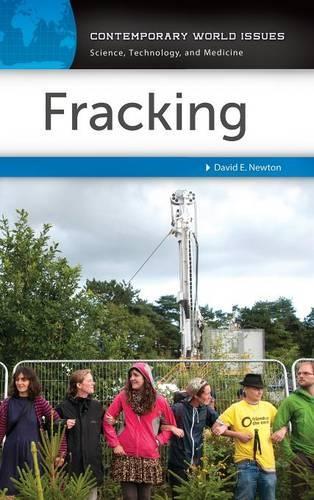
Fracking: A Reference Handbook
(Hardback)
Publishing Details
Fracking: A Reference Handbook
By (Author) David E. Newton
Bloomsbury Publishing PLC
ABC-CLIO
16th January 2015
United States
Classifications
Tertiary Education
Non Fiction
Mining technology and engineering
Fossil fuel technologies
Energy resources
333.8233
Physical Properties
Hardback
360
Width 152mm, Height 229mm
680g
Description
The use of fracking is a tremendously important technology for the recovery of oil and gas, but the advantages and costs of fracking remain controversial. This book examines the issues and social, economic, political, and legal aspects of fracking in the United States. Hydraulic fracturing of oil and gas wellsknown commonly as "fracking"has been in use in the United States for more than half a century. In recent years, however, massive expansion of shale gas fracturing across the nation has put fracking in the public eye. Is fracking a "win win" like its proponents say, or are there significant costs and dangers associated with the use of this energy production technology This book examines fracking from all angles, addressing the promise of the United States becoming energy independent through the use of the process to tap the massive amounts of natural gas and oil available as well as the host of problems associated with frackinggroundwater contamination and increased seismic activity, just to mention twothat raise questions about the long-term feasibility of the process as a source of natural gas. The first part of the book provides a historical background of the topic; a review of technical information about fracking; and a detailed discussion of the social, economic, political, legal, and other aspects of the current fracking controversy. The second part of the book provides a host of resources for readers seeking to learn even more in-depth information about the topic, supplying a chronology, glossary, annotated bibliography, and profiles of important individuals and organizations. Written specifically for students and young adults, the content is accessible to readers with little or no previous knowledge regarding fracking.
Reviews
Although written for students and young adults, this book is accessible for all readers and is recommended for public and school libraries. * Booklist *
This is a strong and timely choice for an undergraduate or public library reference collection. . . . [I]t will work well as a lower-level introduction to the topic. Summing Up: Recommended. General readers, lower-level undergraduates. * Choice *
Author Bio
David E. Newton, EdD, has been a freelance writer of nonfiction books and ancillary materials for young adults for nearly 55 years.
